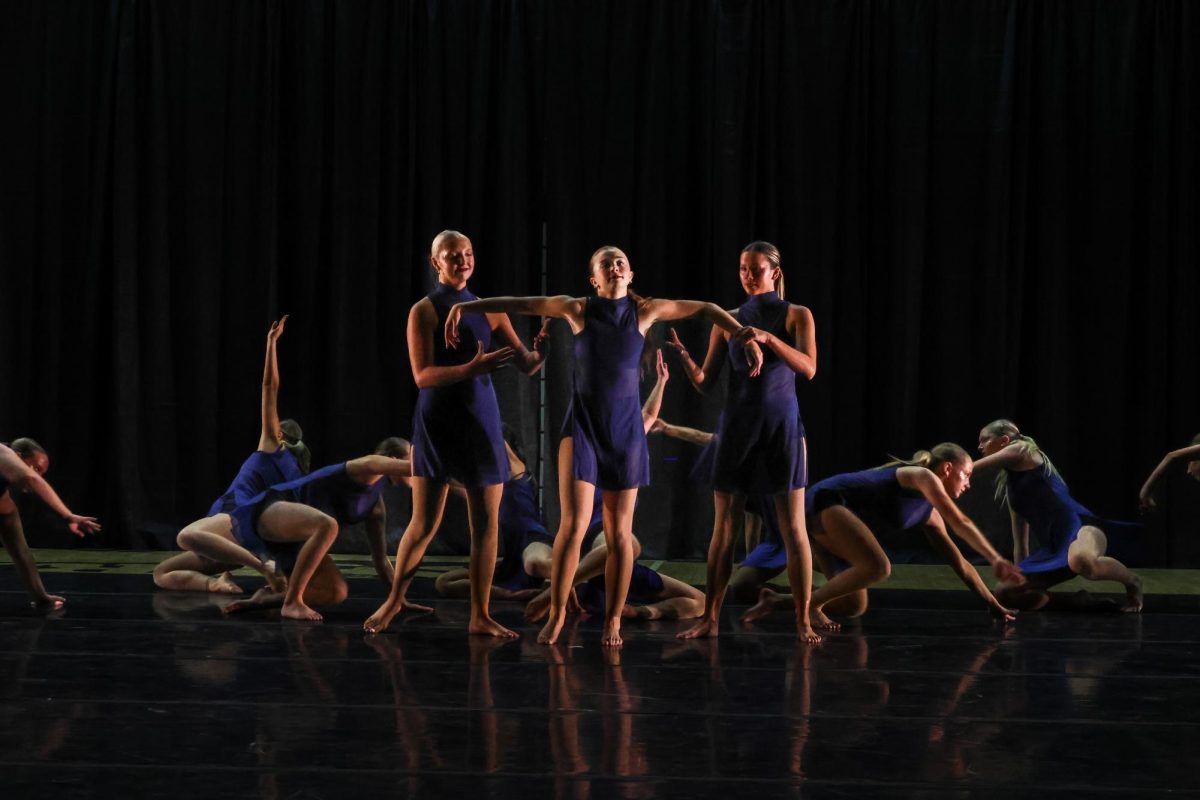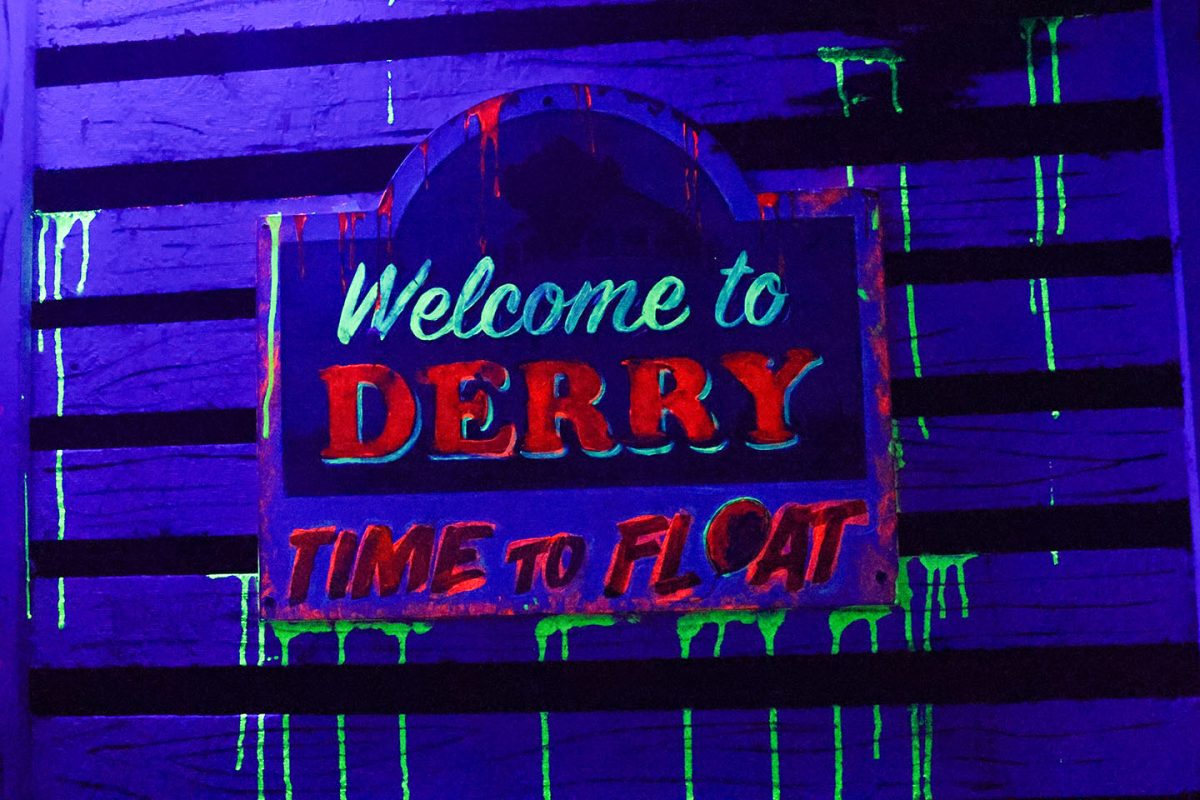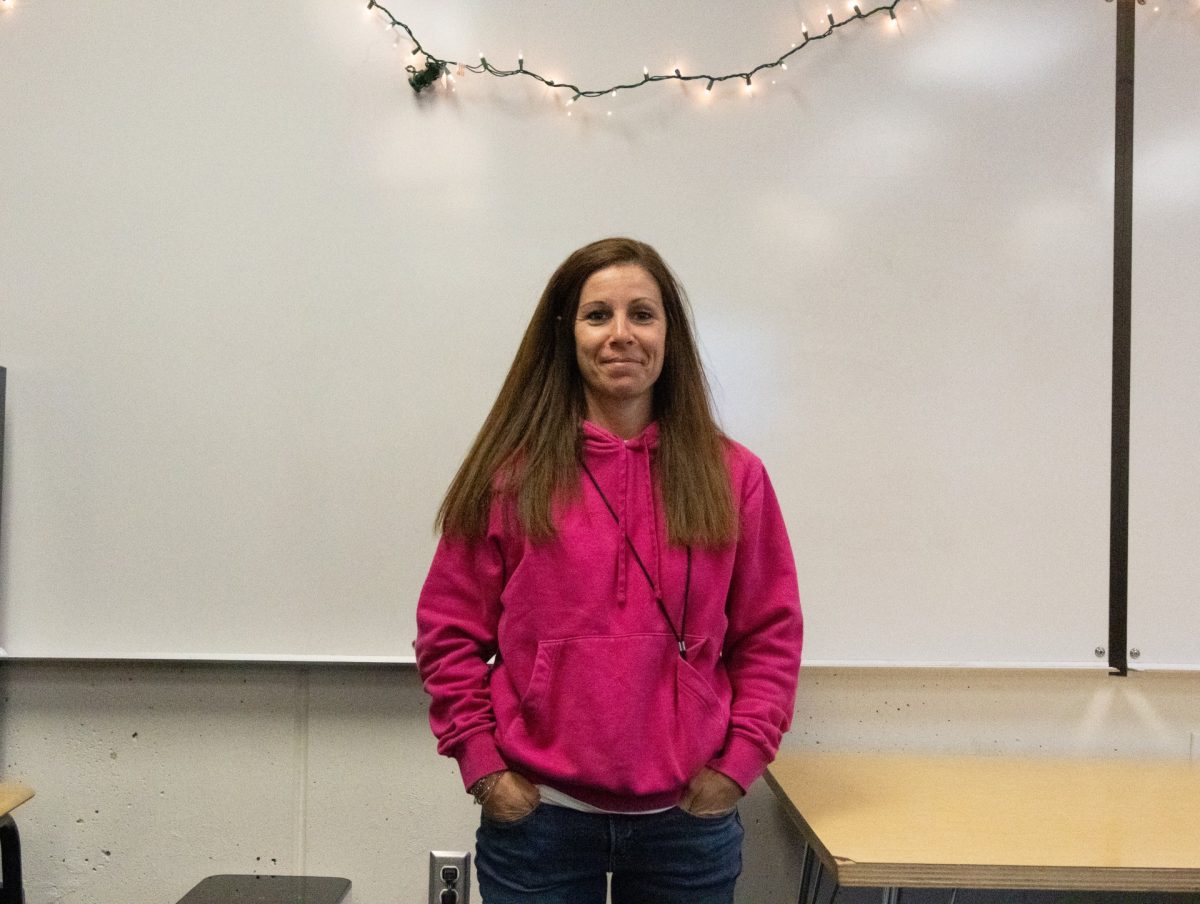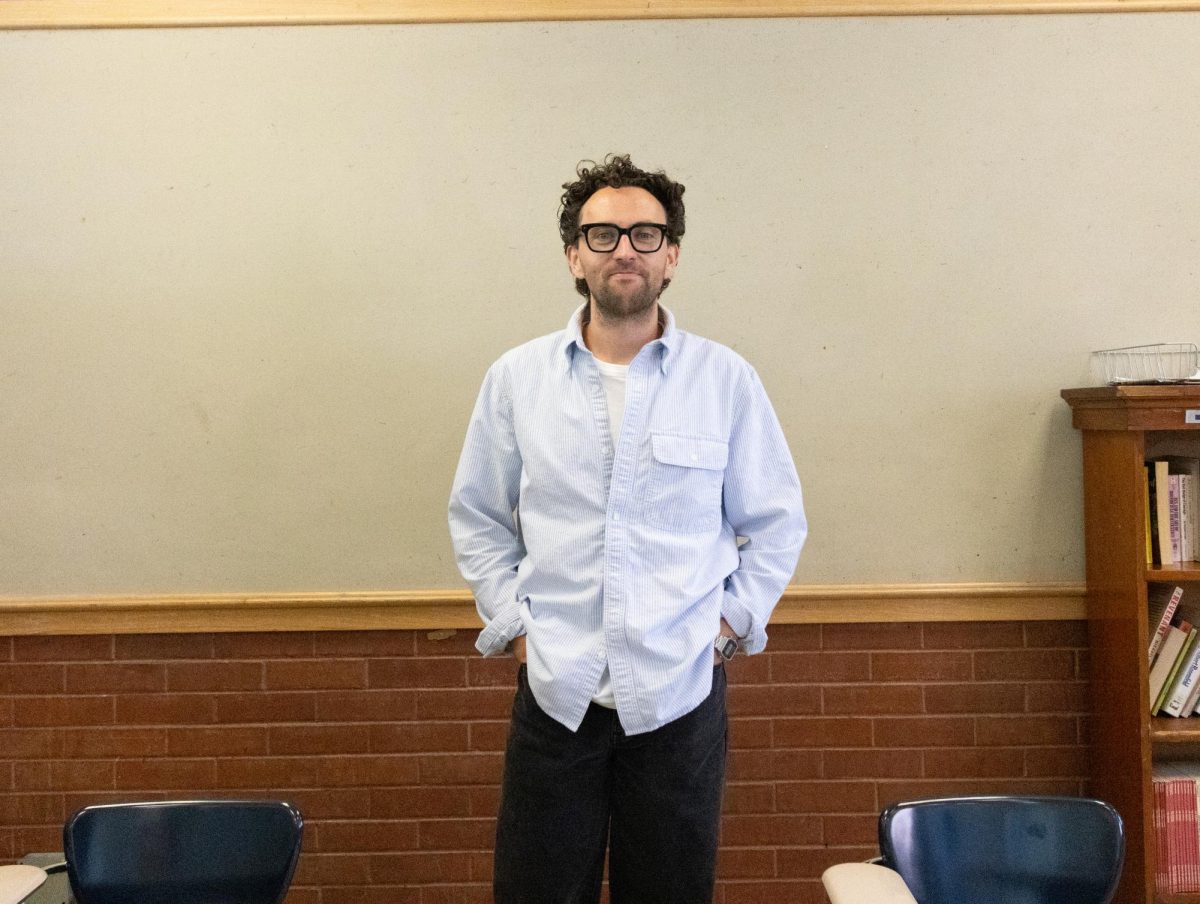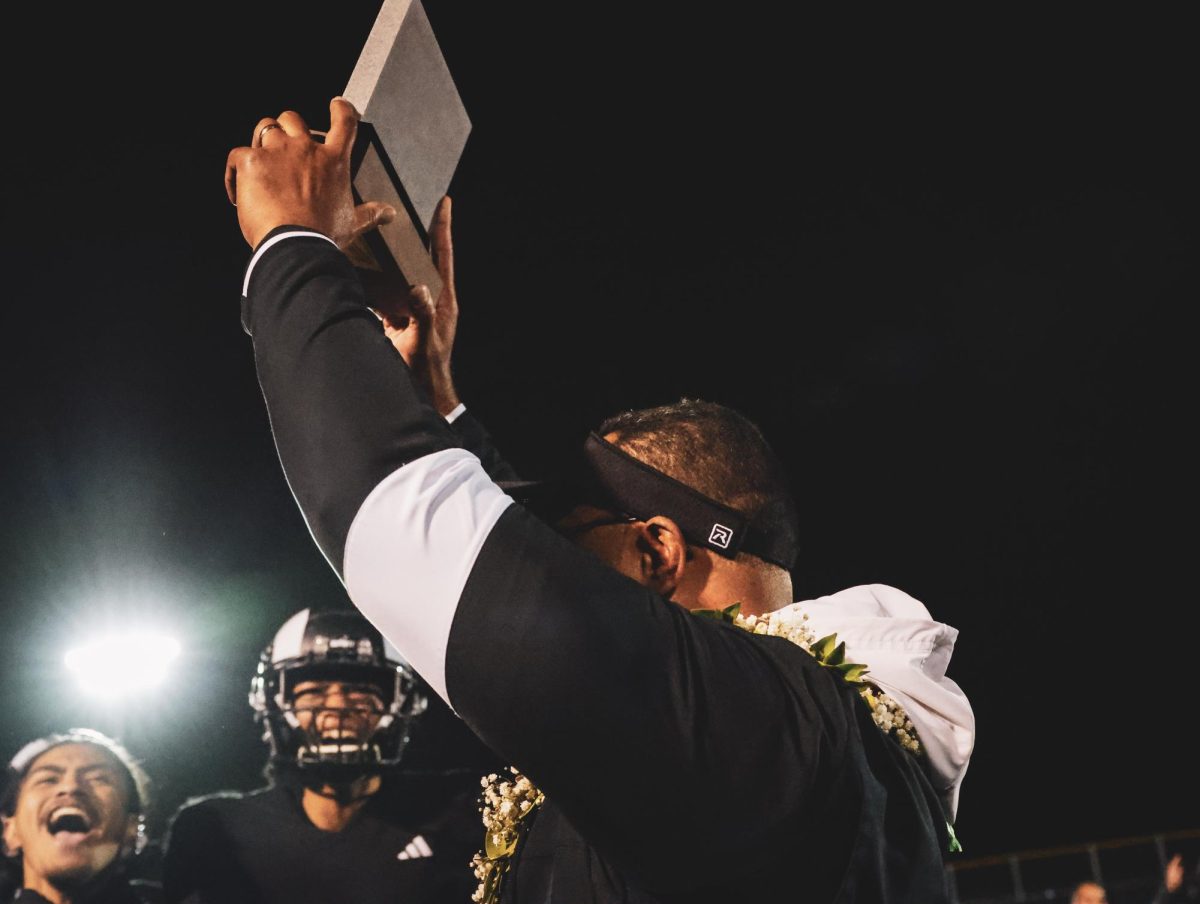The Panama Plan
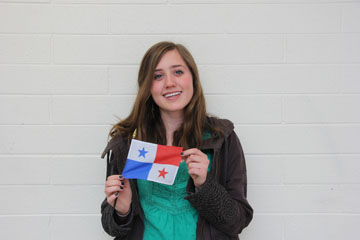
Kylie Pluim holds up the flag of Panama.
May 21, 2015
In an average American’s lifetime, a person is not exposed to a variety of cultures far different from their own. We grow up and are raised with one language, one belief system, and one ideal methodology. Many people would prefer to stay within their comfort zones and avoid channeling that inner bug which wills us to explore uncomfortable territory, both mentally and physically, and would not change this status. However, many does not mean all, and there are just as many willing as there are unwilling to wander outside of the means by which they have been raised. It may be a daunting prospect, but it’s not that bad at all.
Junior Kylie Pluim has had the opportunity to have been exposed to two worlds. Having a father who works in the recruiting business for factory workers, many of whom speak Spanish, her scope has been widened over the years as she has been put in situations where she must interact with those who speak a foreign language. Although bumpy at first, she is choosing the more adventurous path, to immerse herself in the unfamiliar rather than to reside wholly within what she experiences day to day.
“My dad works with a lot of Spanish speaking people, and I just started learning Spanish because I could get a summer job there. [It has] let me build a lot of interactions with people, and it’s really helpful if you know a second language. Even if I go to college, I can use that to my advantage and get good jobs,” Pluim said, telling of the foundation of her now five year long experience with the Spanish language.
Although the United States and Latin America are in close proximity, like any culture clash, the two regions differ extensively from one another, but Pluim is poised to take the leap. The summer before her senior year of high school will prove to be a lot more colorful than any other.
Amigos de las Américas is proud to be hosting Pluim as one of its volunteers over the summer of 2015, during which she will be a participant for six weeks. Departing for the country of Panama on June 23rd and arriving back home on August 4th, Pluim will most definitely be stretching her limits.
A non-profit organization that sends high school and college aged students to Spanish-speaking regions in Latin America, this program allows Pluim to spend six weeks working with the locals and facilitating change. Having been to Mexico twice, Pluim stayed at her grandfather’s condo, and even though this counts as foreign, she still was able to survive on English and being familiar with the people she shared room and board with.
“I heard that when I go down to my community, it’s one big family. Just because it’s really small, they know each other really well, and I think it’s awesome,” Pluim said.
That’s right; this time, she will not only be visiting an unfamiliar land, she will count on herself to understand and be understood by those of a different culture. A remotely shy person might find difficulty in what she is doing, but it takes some serious gusto to endure being put under pressure in another language and succeeding in one’s endeavors.
“You do an interview in Spanish and in English, and then they just choose you. It’s not super hard,” Pluim said, describing the process by which volunteers are chosen.
It’s not hard for someone who is willing to break free from inhibitions, be them great or small, and certainly Pluim has learned to grow out of any shyness she might have previously harbored. Pluim has stretched herself to her linguistic limits by putting away her inhibitions as she visits Spanish speaking businesses to gradually immerse herself in the language before going six straight weeks with all Spanish and no English. Personally considered as not largely outgoing, Pluim’s gregariousness has grown from these trying experiences in another language.
Having been allowed the choice of five top countries from which her final destination would be selected, Nicaragua, Paraguay, and the Dominican Republic were some of her choices besides Panama. Even the bravest of us have some reluctance that is due, and this played a factor in Pluim’s choice of country.
Amongst the country choices were regions that escalated in the level of camping experience required to live there, so due to Pluim’s strong disinterest in camping, Panama opened up as a possibility. It was not quite as rural as some of the other countries, and its climate was more temperate than that of the freezing Andes Mountains in Peru.
When two cultures intermingle, there is room for questioning on both ends. Why certain things are done a certain way when they may be done differently is something many service project volunteers never ask out loud; a change is made in the unanimous assumption that their way is better for the world to live by. This is not entirely true, and on her trip to Panama, Pluim and past volunteers are not working to alter the infrastructure that exists, but to help alongside the people to work towards what they want.
“For example, one of the volunteers last year had all of these garbage cans put around the community because they threw trash in the streets; not really threw, they didn’t have a place for trash, and she used garbage cans and helped make a cleanup program,” Pluim said, being careful to avoid making negative implications about another culture merely because things are done differently within it.
“I think that when people go down there to change that sort of thing, it’s not helpful for anyone…. I think that it’s helpful for [the locals] maybe if you teach them how to use it, how to maintain it, but a lot of times people don’t do that and just expect them to know how to take care of it, and that’s not helpful for anyone… I don’t think cultures can accept a different culture’s way of doing things just because it’s so different. If it’s working for them, then why not just let it be,” Pluim said.
You may have recognized the name Kylie Pluim from this year’s student body officer elections, which Pluim won for the 2015-2016 school year. Three AP classes, competitive soccer, and Pep Club are keeping her busy in the meantime, but until June 23rd, Pluim has a lot to look forward to.
“I’ve never had any experience without running water or electricity before, so I think I’ll just have to adapt and learn how my host family does it down there, and the rest of the people of that community and just learn from them, and make it up as I go,” Pluim said, optimistic about the challenges that await her.
People must learn from the ways of those they have never met, and the only way to do so is to let go of the usual routine for a while and catch up on the local ways. They can’t hold on too tightly to one way of doing something, while those around them practice a different method they have never tried, Pluim believes. As they say, when in Rome, do as the Romans do. Pluim will no doubt be learning the practices of her new friends in Panama, although she has yet to meet them.
In a process called the briefing, Pluim and all of the other volunteers will be sent down to their assigned country to meet the organizers and to be paired up with another volunteer whom they will be living with for the duration of six weeks. After being paired up, the volunteers are dropped off at the doors of their host families. The best part of this process is that it will be Pluim’s first time meeting both her partner and her host family. From that point on, it will be the intermingling of cultures and customs, which Pluim expects to be a lot of fun, however spontaneous things prove to be for her. The best medicine for anything unexpected is oftentimes to go with it, even at times when customs may seem surprising or even wacky. Pluim is putting her best foot forward, even in a country with no doors.
“Since it’s such a hot climate down there, they don’t really have any… doors. They have doors, but it’s really open, and since the communities are so close, they don’t really lock their doors, so instead of knocking, I have to yell, ‘buenas‘, from the street, and they’ll yell back, ‘come in’, and I can come in. They don’t really knock,” Pluim said, laughing.
The best of wishes go to Pluim and all of her fellow volunteers as they use their skills with language to embark into the unfamiliar, and positively so, uncomfortable territories that lie just south of where the majority of us call home.
